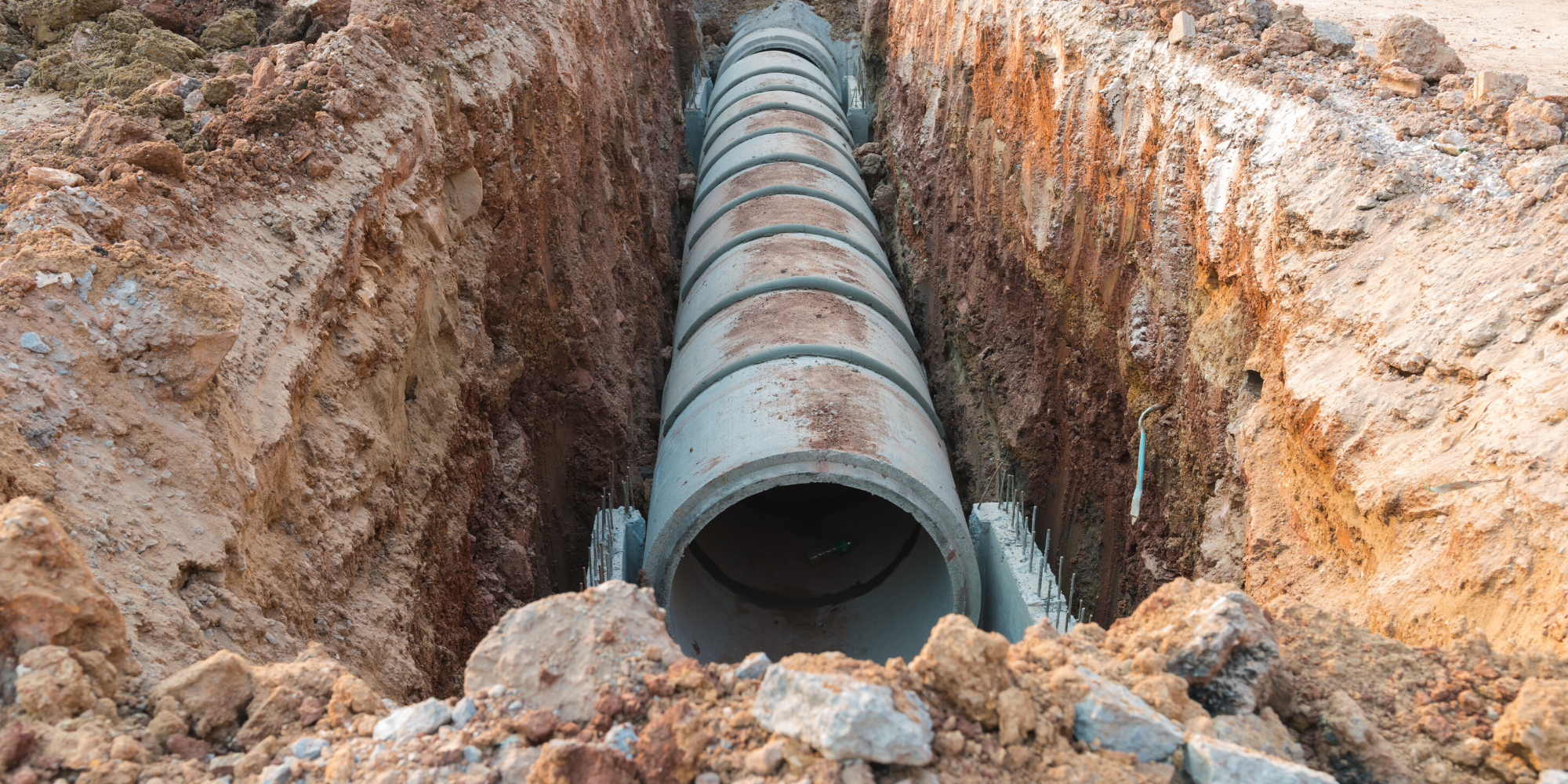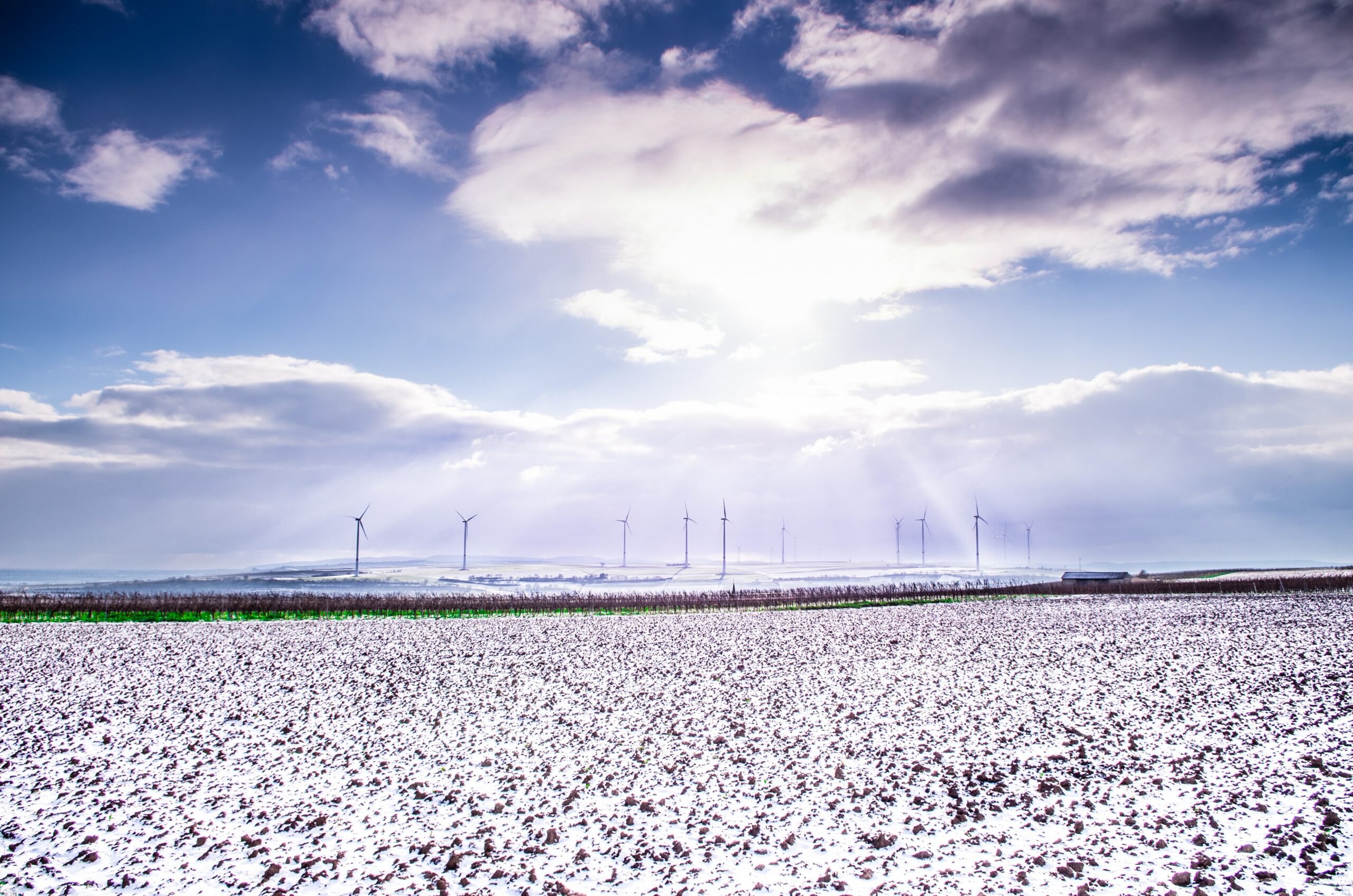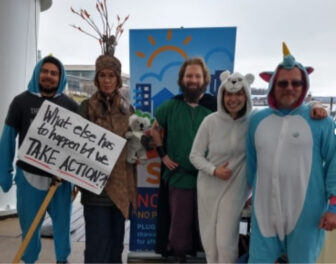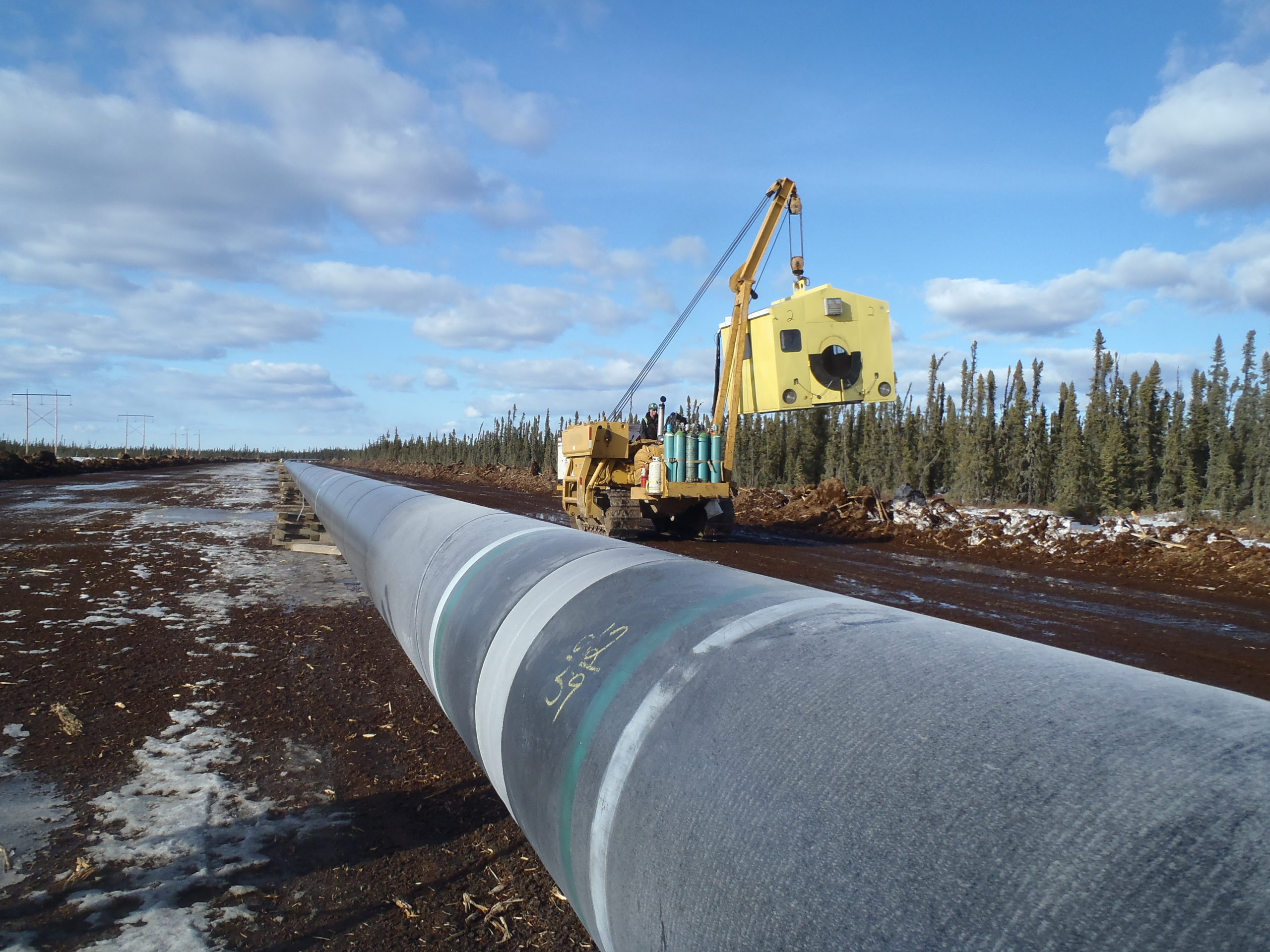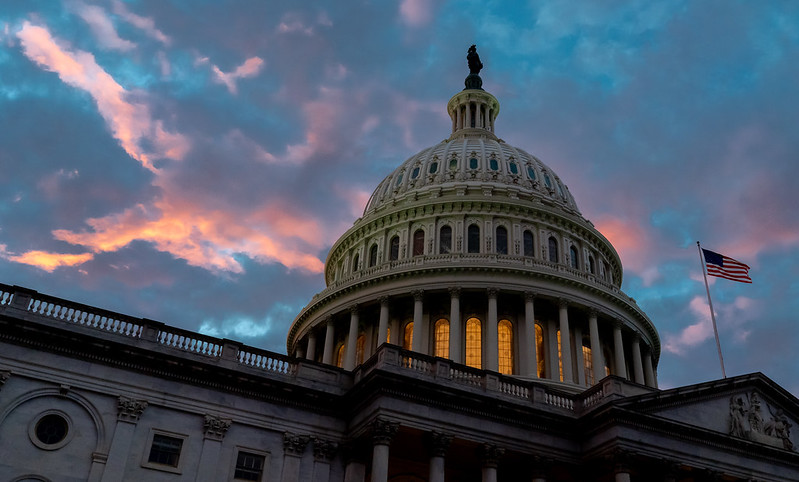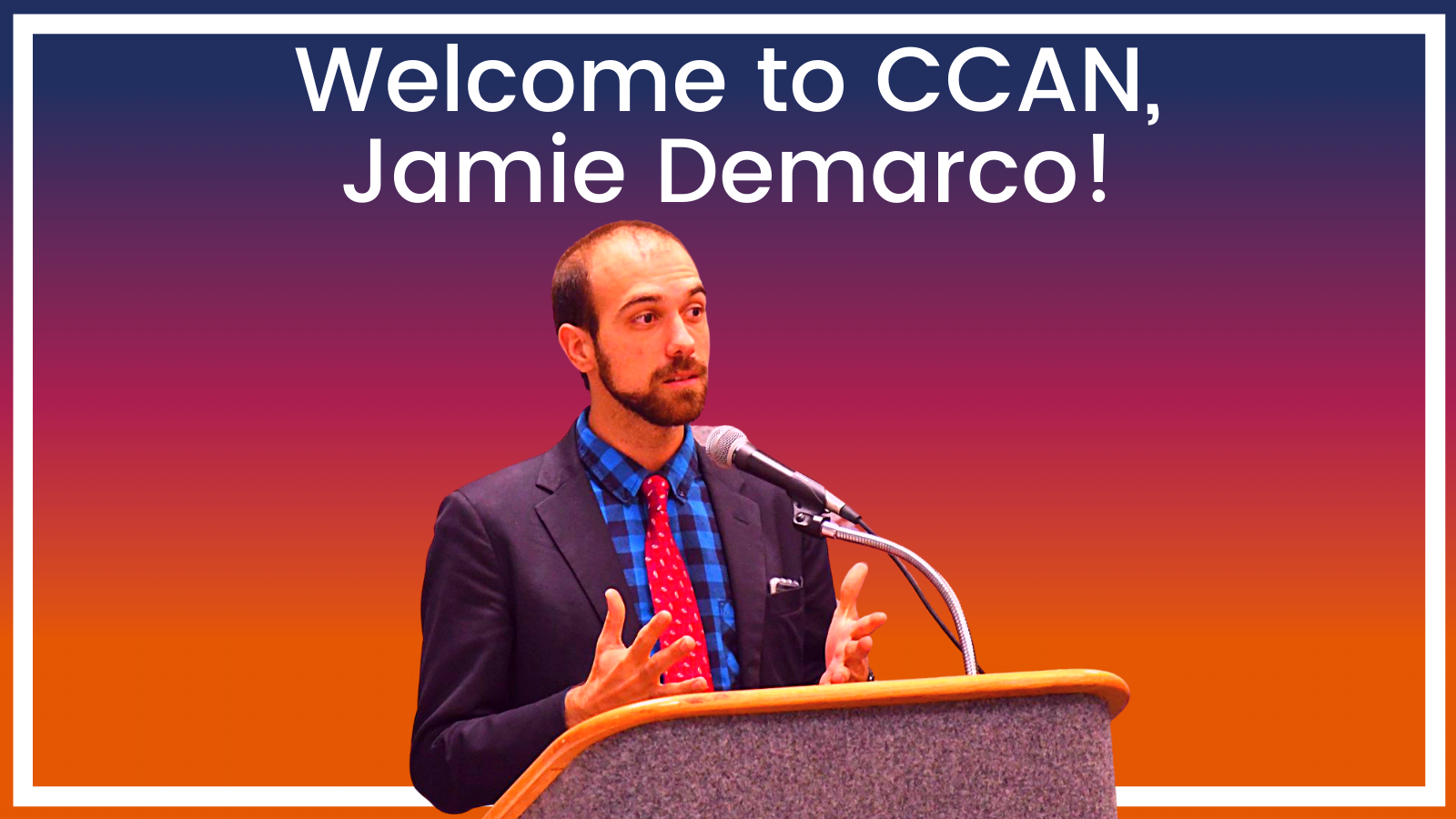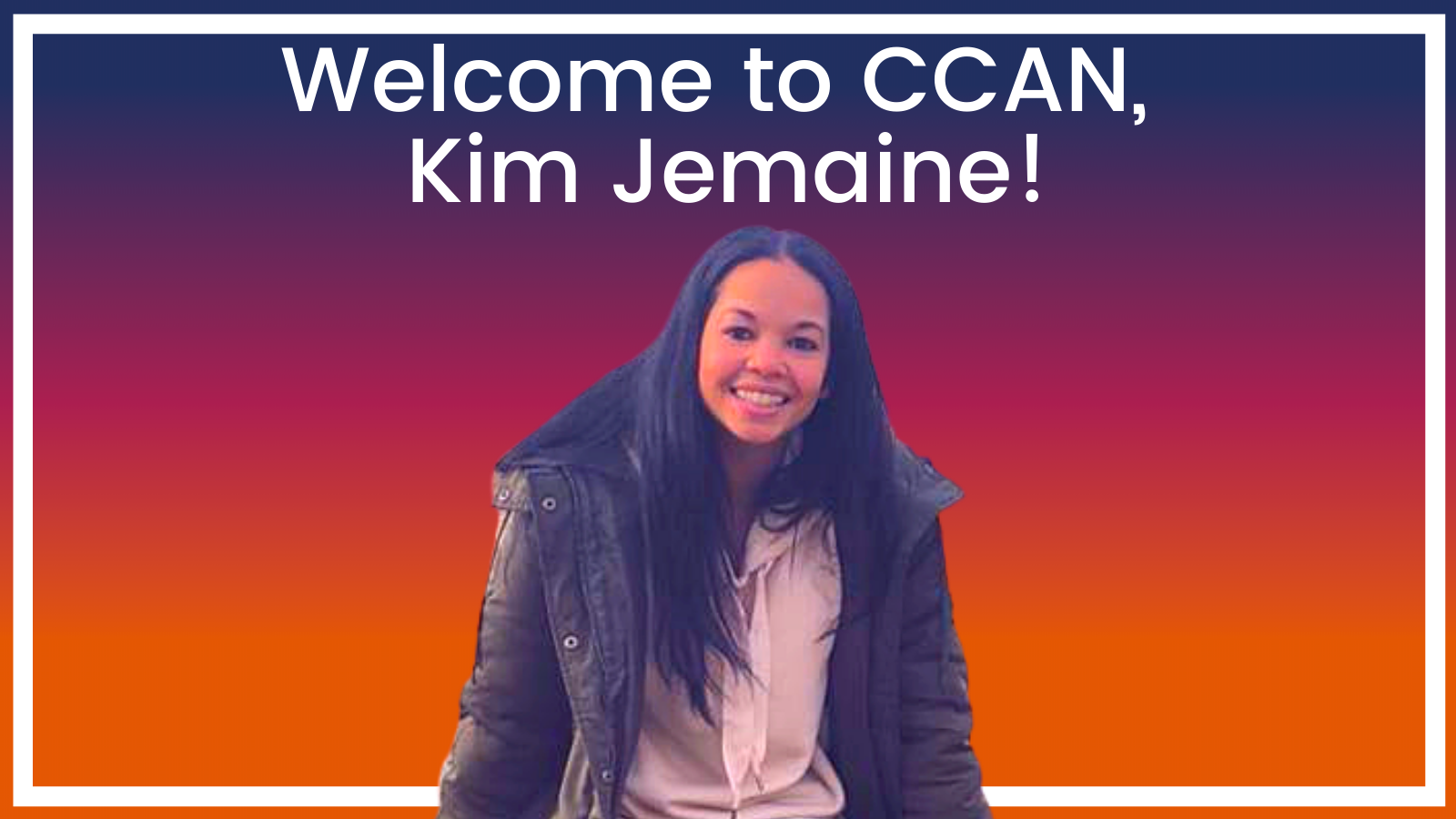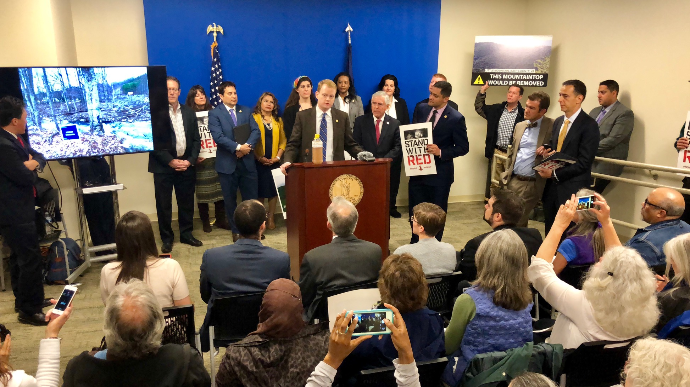Just a few weeks ago CCAN had the pleasure of welcoming our new Federal & Maryland Policy Director Jamie DeMarco to our team and we are very excited to introduce you to him! Jamie joined the team as our new Federal & Maryland Policy director and will be leading us to future legislative victories on Capitol Hill and in Annapolis.
A Baltimore native, Jamie has spent the past few years cultivating massive wins in the environmental advocacy space, we are lucky to have him joining the team and joining us today.
We sat down with Jamie to chat with him about his journey in climate activism and his road to CCAN, his role in the climate movement, and what he sees as his most exciting challenge moving forward! Check out the interview below:
Follow along with the transcript below:
Charles Olsen 0:00
Jamie DeMarco recently joined CCAN as our new federal and state policy director and will be leading us to further legislative victories in the state of Maryland, as well as expand our legislative agenda on Capitol Hill, a Baltimore native Jamie has spent the past few years cultivating massive wins in the environmental advocacy space, we are lucky to have him joining the team and joining us today. Jamie, you’ve been working in climate policy and activism for some time now. Can you tell me about the first time you organize people? Were you drawn to this work as a kid, did this come naturally to you?
Jamie DeMarco 0:30
Thanks so much for asking. And thanks for interviewing me, I really appreciate it. I mean, I think it’s so fun that you want to hear from me, and I’m really glad to be in this role at CCAN. But the first time I really started organizing people was early college before that, I had been channeling all of my energy just into my own life, trying to reduce my own impact on the climate crisis and all the other crises that we see. And I was really just trying not to be part of the problem. So I wouldn’t even actually write in cars. Like I spent two and a half years where I wouldn’t get in a car, even if it was already going somewhere. I need very few exceptions like Thanksgiving. But other than that, I would never do it. And it drove everyone around me up the wall. And it was really hard. And I lost a lot of connections and opportunities. That way. It’s kinda It was kind of like being in self quarantine, except I was the only one doing it. And nobody was sympathetic for two and a half years, but I sort of ended that when I started organizing with the beyond coal campaign in Asheville, North Carolina, and I was just an intern, doing work, you know, getting small businesses to try to sign on to say that they would support closing this coal plant and administrative tasks like entering in ballot or signature resolution data into databases. But I was so balanced, the people who were moving and shaking and like, if you just imagine this coal plant, I remember seeing it and it was like the biggest machine standalone machine I’ve ever seen. And we would just have these weekly meetings. If it’s random office building work, our plan was to like, make it stop operating. And the idea that we could do that just seems so ludicrous to me, especially because this is one of the coal plants that was at the time. It made financial sense, like it was relatively newer, and was not no one was talking about retiring, except for us. But through a long, intelligent campaign, they got that coal plant closed, and it’s today doesn’t operate, because of the people who would have those weekly organizing meetings that I was a part of. And I was so struck, how if all of those people had just tried to reduce their own footprint, rather than trying to close that coal plant, then that coal plant might still be operating today. And that was just so eye opening for me about what we can accomplish with our efforts if we put it in the right direction. And that is when I made the choice, that I wasn’t going to make my goal to not be part of the problem. I am going to make my goals be part of the solution, and then end up getting back in the car to become a more effective climate advocate. And I’ve been going at it ever since.
Charles Olsen 3:27
Amazing. Thank you. You talked about your experience working on getting the Asheville coal plant shut down. Can you tell me a little bit about some of the main things that you’ve learned from that experience that you use in your organizing work now,
Jamie DeMarco 3:43
At the time for that campaign, I was interning for Anna Jane Joiner, who is a major mover and shaker in the climate space. She is the daughter of an evangelical pastor who you know is very conservative, and actually stopped paying her college tuition when she was in college because he didn’t support the climate change ideas that her professors were putting in her head allegedly. And so she has been a sort of public figure about climate change. And one of the things that she told me as we were riding around Asheville in her car is that it’s not just about the numbers a lot of my training has sort of been like get the numbers get like this many petition signed phone died down get this many people to show up one on one conversation with those people to get this many people to be champions and it’s sort of like a almost like a for a good cause pyramid scheme. And Anna Jane Jr. would always call me like Jamie It is about connecting with people in a deep, profound way in the culture and worldview that they connect with and connecting to that and connecting that to the issues that we’re working on and Have people care about these things, more than a ballot, more than a sort of box to be checked more than a party that they’re affiliated with, but in their core sense of self, and the things that they care about? And that’s something I’ve never forgotten and always hold on.
Charles Olsen 5:22
That’s super inspiring. You’ve talked about your faith in the past and how it’s important to you. How does your faith influence your work today in organizing and in the climate movement?
Jamie DeMarco 5:32
Yeah, that is a great question. And my faith is important to me, and especially my faith community, like I grew up as a Quaker. And the sort of Quaker youth program that I was a part of was super formative, and Quaker camps that I went to. And I’m not like, like expanding, I don’t think of myself as a very religious person. Like, it’s kind of funny to think of myself as like this church geek, or some of these huge church programs. But that is what it is. And the faith, like the community is important just because it is a community and like it is the people who I would have would have been the constant threat to my life, and who I hold on to for stability and emotional support. And that in and of itself is important. But the faith itself that I hold most dear is that Quakers believe there is that of God in every person. Like there’s literally that of God, and every person. And I think that that plays into our work, because it sort of disqualifies any solution that would sacrifice people and like, disqualifies any solutions that would say like, this is a good solution moving forward. But like this group of people, is just not going to get the benefits of this group of people is going to be left behind. Because they, like every single person has gotten them and like you can’t throw God under the bus. And like every single person has this inherent dignity that you can’t trample on. And that’s sort of like the number one rule of the road, and then everything that you do has to follow from working backwards from that truth. That’s a beautiful thing about that a lot.
Charles Olsen 7:20
That’s beautiful. While you were talking about the importance and the significance of every person, it brought to my mind the issues that we see today about incorporating justice into climate solutions. How do you believe that your religious beliefs and your climate goals overlap with the environmental justice issues of our time?
Jamie DeMarco 7:43
Yeah, I think they overlap a lot. I mean, I first just need to say that I come from a lot of privilege and come from a place of sort of great security, like I at the end of the day can work on these issues, and then come home, to a place that is like a park near the backyard. And I don’t sort of fear for my loss of ability to breathe clean air, and sort of know that if anyone ever tried to harm the community I live in with a project like it would just be so unthinkable that it couldn’t happen because of the wealth and the whiteness that surrounds this community that I live in, in College Park.
So acknowledging that
I did grow up in Baltimore, and Mike had a lot of friends who had asthma who grew up like in the shadow of the incinerator, and I never made those connections as a child. It’s just like, oh, like all those friends of mine have asthma, I guess they can’t run in gym class, as much. But a lot has become more clear to me as a grown up and sort of brickcom started doing this work professionally and listening to people. And I think the most important thing is if someone has experienced oppression that you have not experienced, the most that you can say to that person, in that moment is like I believe you. Like I cannot fully understand what you have experienced. But I’m not going to challenge it or argue with it once right, I get like I believe you. And I take you at your word that like this is what’s happening. And this is what we need to do. And I think that humility is important and isn’t alarmed by faith.
Charles Olsen 9:32
Thank you. Shifting gears a little bit. You’ve kind of already told us about your experiences of getting into environmentalism and the climate movement. Can you just take me through the steps that you took to get from what you have described as your hunky dory life in Baltimore, to working for the Chesapeake Climate Action Network and joining the climate fight?
Jamie DeMarco 9:53
Yeah, I mean, that’s the precipitating event. Like some of the greatest precipitation events that one has in life came from my girlfriend in high school, who really told me Jamie, like, Listen, the life you’ve been living comes at the cost of people in places all over the world. And up until that point, I had just been like, waking up as a kid living my life and like the things I thought about were like, how I was gonna have fun, like, how I was gonna like go do theater and then back home and then do the cross country team and then hang out with my friends, like there was just wasn’t a part of me that was thinking about my responsibility to account for the like, impact that my life has, and just more generally, to be accountable to the greater good. I mean, obviously, I cared about the greater good, but it wasn’t the thing that I thought about in my life. And then I had this transition period where I felt like I really couldn’t be happy because I was causing harm with my life. And I’d been taught that, like, if you’re causing harm, you’re a bad person, and like, I want to be a bad person. But I also wanted to live my life. And I just felt so confused. And I think what has emerged from that, is this just sort of underlying drive to do the most that I can with this, like, short, precious lights that we have?
And I mean,
I don’t know if you’re like asking about the resume, or like my career path more.
Charles Olsen 11:27
Yeah. So could you take us through from working on fighting to shut down a coal plant? What professionally have you done to cause less harm? And to kind of go with that feeling that you just mentioned, to bring you on your path here to see can?
Jamie DeMarco 11:46
Yeah, so I’ve been going as hard as I know how on the climate fight for a long time, you know, in college, I helped found our fossil fuel divestment campaign at our college, which was successful when I was in college divested from fossil fuels, we were one of the first and that was huge. I helped organize a lot of my peers, to get arrested at the Keystone to get rested at the lighthouse protesting the Keystone XL pipeline, I organized a vein of like a whole bunch of people to the Climate March in New York City. After college, I got a job working at the friends committee on national legislation, which is a great organization, and I was actually working on nuclear disarmament. And it was really fun to just work on a different issue for a whole year and learn a lot about the differences between different issues and see the climate issue from the outside. And, and after that, I helped found the Maryland clean energy jobs initiative, which was, of course, Maryland based. And it was a nonprofit that we created exclusively to pass this one bill, the Maryland clean energy jobs act to achieve 50% renewable electricity in Maryland, by 2030. And we created a two and a half year six step plan to get that bill enacted. And then we followed it and hit every benchmark and got that bill enacted. And from there, I moved on to working at the citizens climate lobby, where I’ve been for two and a half years, which, you know, advocates mostly at the national level for carbon fee and dividend pay bipartisan solutions. But I was mostly working at the state level. So my job was to help citizens’ climate lobby volunteers get plugged in the state level advocacy campaigns, to produce submissions. And we work in New York, in Oregon, DC and Maryland, all over the country on a lot of really exciting and successful campaigns. And then from there, I came to the Chesapeake Climate Action Network where I got my first professional experience. And so it feels like coming home.
Charles Olsen 13:59
Your dad, Vincent DeMarco was hailed as one of the greatest lobbyists to come out of the Maryland State House. How does his legacy shape the work that you do?
Jamie DeMarco 14:08
I am really lucky, I’m really privileged to have my dad be who he is. I, you know, grew up in a home where he was coming home every night and saying like, no, this is good. We’re working in Annapolis. And this is the headache we’re running into. And my mom also is an incredible advocate. And you know, she’s been working in Annapolis for years on a number of different issues. And, you know, sometimes like that would be the subject of family dinners like which legislators were doing what and how we were going to get around it. And so that was sort of like the water I was spinning in growing up. But I do think that there’s a certain amount to which you can’t see what your parents do as a thing that really could be applying to your life like it’s almost just too much like the default. And I do think that I had To go to Asheville and find advocacy on my own, in a different way, in order to feel like I had ownership of it, and I was like really choosing my path in my own way, so you know, you sort of have to leave home to find home. The home was always there waiting for me, but I just had to go find it somewhere else.
Charles Olsen 15:24
Shifting gears again, what do you think the biggest challenge is that you face while working in climate activism?
Jamie DeMarco 15:30
We’re doing something really hard. We have to change the hearts and minds of so many people about the way we live and the way we think about each other. And on top of that, we have to like, physically change the entire infrastructure of our world. Like in Montgomery county and Prince George’s County, they’ve been working on the purple line for like 15 years, and you know, it’s facing further delays, it may be another like, five years before it’s done. And that’s to build like one rail system. And in the coming decades, we need to literally overhaul our entire energy system. Like in the fight for marriage equality, we had to change a lot of hearts and minds. And once those hearts and minds were changed, we achieved marriage equality, and like now it is now the law of the land. In the climate fight, we have to change a lot of hearts and minds about how we live our lives and how we use our energy. And then once we’ve done that, we need to go into every home in America and retrofit it to electrify it. So there’s just a huge infrastructure challenge. No, nothing like this has ever been done at a global scale. And I think that’s part of again, where faith comes in. Because secularly looking at it, it’s really easy to become hopeless. And I think you need some sort of illogical belief that what we are doing is worthy and has a chance of success. And, and that’s what keeps me going a lot of the time.
Charles Olsen 17:09
So often, we get caught up in the day to day work of saving the planet, you know, one policy at a time getting each thing done. Can you describe for me the world that you are fighting to achieve? For me personally, I fight for the possibility that my future kids, when they exist, will have a better world than the world that I grew up in. Can you paint me the picture of the world that you want?
Jamie DeMarco 17:35
Yeah, that is a great question. And I first just want to answer by saying that I encourage everyone to check out Naomi Klein’s collaboration with the intercept, creating short videos describing the better world that we’re trying to make, because I think they do a better job of that creative visioning of how the world could be better than anything else that I’ve seen. But in broad strokes, like we’re envisioning a world, where like, every single person has inherent worth and dignity. And that is not just an idea, but a sort of guiding policy principle. So that we don’t have anyone who’s struggling to find food, but like certain things are just daring to, they don’t have anyone who’s been put out on the street in the cold against their will. Like we just people often say, and I think it’s really true that like if we really, if we didn’t have embedded racism, if we didn’t have the belief that certain people are expendable, then we never would have been in the climate crisis, because we never could have built the fossil fuel infrastructure infrastructure to get us here, without sacrifice zones. So this gets back to what we were talking about earlier, that part of the world we seek is just one that values human dignity and each person more because if we can achieve that world will not only solve the climate crisis, but we’ll make a better world. And I just like to have all these visions of worlds where energy is nearly free and bountiful. And food is nearly free and bountiful. And like people instead of worrying about what menial tasks they’ll do in order to scrape by in the living like, know that for the rest of their lives. They’ll have housing, food and health care guaranteed. And that they can pursue what creative pursuit they want to follow. Like, I would love to be a creative nonfiction writer, like I’m not good enough to make money at it, and I’m doing this other climate thing. So there’s like all these reasons in this world that could never work like in the world that I’m dreaming of. We don’t have systemic problems that we have to give our lives to to solve. And we all are free to pursue whatever we want creatively whether or not it’s going to make money. So that is a little pie in the sky, but In the world that I dream about, and I do fall asleep dreaming about it pretty often.
Charles Olsen 20:04
What do you want to achieve at CCAN? What are your main goals while working in your position?
Jamie DeMarco 20:13
So as we’re talking, it’s October of 2020. And I really, really think that in the next seven months, we are going to pass the Clean Air Act of our time. Like I just like every fiber in my being is telling me but like, we can do this, you know, the Chesapeake Climate Action Network, I can say this, because we have actually endorsed Joe Biden, and some Senate, Democratic Senate candidates, checks the Climate Action Network Action Fund, I should say, has endorsed those candidates. And I think we’re going to have a democratic sweep of the White House in the Senate. And then we are going to pass like the biggest, boldest, fattest climate legislation that anybody could ever have imagined. And it’s going to be a total before and after, for the movement.
And for our missions, and for her world.
And in these next seven months, where all that is going to happen, I just want to test the Climate Action Network and the Chesapeake Climate Action Network Action Fund, to do all that we can to be useful, you know, we are a lean, mean, scrappy, local organization that has a history of punching above our way and like getting things done. And I want us to be as innovative, creative and effective as we can possibly be to make a difference in this national fight, because it’s going to be a national fight, it’s going to be a clash of Titans, there’s going to be players much bigger than us. But we are going to contribute all that we can. And the main thing that I want is for us to be useful. And for us to contribute something and make the bill better help the bill pass in some way. And on top of that, bring home the bacon for Maryland, which is the policy area that I’m in charge of additional federal work and Virginia where Kim is responsible. So bring home the bacon from Congress to Maryland and Virginia, and then help Maryland and Virginia build on national legislative success to pass what everyone used to think was impossible.
Charles Olsen 22:24
If you could enact any one policy right now, what would it be? And why?
Jamie DeMarco 22:28
For some reason, I’m really drawn to this policy of carbon, zero carbon electricity generation by 2035, with $2 trillion, to electrify everything, give a just transition for workers, and fund environmental justice, historical discrimination communities, and current discrimination communities. And that, of course, is the Biden climate plan, which I think it’s just jaw dropping, that he has endorsed and is advocating for and talks about it in the debate that he supports, eliminating all carbon emissions from the electricity sector by 2035. And then investing $2 trillion for justice, just transition and electrifying of everything. And that, like it was less than four years ago that Bernie Sanders was introducing a bill to achieve zero carbon electricity by 2050. So how far we have come since then, I just jaw dropping to me. And that’s the policy, I wouldn’t act. And that’s the policy I want to help get enacted.
Charles Olsen 23:39
Before I let you go. I have to ask, Is there anything you would want to tell others, all of the young folk who are thinking of getting into activism or climate work, any advice that you would have for them just joining on?
Jamie DeMarco 23:53
if you are a young person who’s interested in making a difference on climate, like there is no one who can make a bigger difference than you can. All the power that goes to Congress, all the power that goes into these national fights comes from the grassroots sort of lobbyists and super power lobbyists and grass tops, figureheads, like, they have no power without the field work of people on the ground. And I think at heart, I’m always going to be sort of like a field grassroots organizer because they just have such a romantic idealization and draw to like the person who is going out and like talking to one person and then talking to another person and making 10 phone calls but no one picks up and then having that one more phone call with it, get someone to take an action and building public weal that way. I think that’s where it all comes from. And you should sign up for just the Climate Action Network, find out how to get involved, and we’ll get you involved, and we’re going to make a better future together.
Charles Olsen 24:58
Jamie, thank you so much for joining me, thank you so much for telling us your story. I really appreciate it.
Jamie DeMarco 25:04
Thanks so much for interviewing me. This was really fun.

